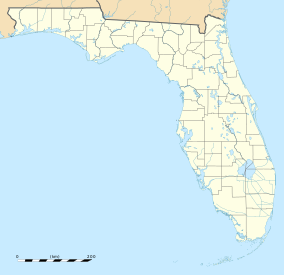Loxahatchee National Wildlife Refuge
| Arthur R. Marshall Loxahatchee National Wildlife Refuge | |
|---|---|
|
IUCN category IV (habitat/species management area)
|
|

Observation Platform overlooking the C-7 compartment on the Marsh Trail
|
|
| Map of Florida | |
| Location | Palm Beach County, Florida, United States |
| Nearest city | Boynton Beach, Florida |
| Coordinates | 26°30′30″N 80°20′00″W / 26.50833°N 80.33333°WCoordinates: 26°30′30″N 80°20′00″W / 26.50833°N 80.33333°W |
| Area | 147,392 acres (596.47 km2) |
| Established | 1951 |
| Governing body | U.S. Fish and Wildlife Service |
| Website | Arthur R. Marshall Loxahatchee National Wildlife Refuge |
The Arthur R. Marshall Loxahatchee National Wildlife Refuge is a 147,392-acre (596.47 km2) wildlife sanctuary is located west of Boynton Beach, in Palm Beach County, Florida. It includes the most northern remnant of the historic Everglades wetland ecosystem.
The Arthur R. Marshall Loxahatchee National Wildlife Refuge is located seven miles west of the city of Boynton Beach in Palm Beach County, Florida. The refuge was established in 1951 under the authority of the Migratory Bird Conservation Act and is managed through a license agreement between the South Florida Water Management District and the U.S. Fish and Wildlife Service. In total, the refuge includes 145,800 acres of northern Everglades habitat. The refuge contains one of three water conservation areas (WCA's) in south Florida and is maintained to provide water storage and flood control, as well as habitat for native fish and wildlife populations. Water is regulated by a series of pumps, canals, water control structures, and levees built by the Army Corps of Engineers. These freshwater storage areas and part of the Everglades National Park are all that remain of the original Everglades.
In 2016, the South Florida Water Management District announced that it was providing notice to the U.S. Fish and Wildlife Service that it would cancel the lease of the property to the federal government for failure to control invasive species. SFWMD is believed to have created the invasive species problem in the first place. It is believed that this approach is being taken to allow for polluted water in excess of 10 ppb phosphorus to be stored on the land.
...
Wikipedia

